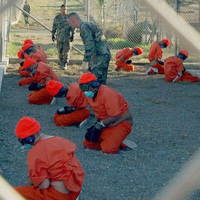Many of America's actions in its post-9/11 campaign against al-Qaida have served to increase Muslim and Arab radicalism, rather than to dampen it as intended. The invasion and subsequent occupation of Iraq, the detainment of captured terrorists at Gitmo and subsequent revelations regarding the use of water boarding and other torture techniques all served to amplify negative perceptions of the United States in the Islamic world and facilitate the radicalization of potential recruits for the terrorists' cause. But two recent developments have led many Americans to believe that al-Qaida and the threat it posed might be on the verge of self-inflicted implosion, a victim of its own extremism. The first occurred in Saudi Arabia, where after a series of terrorist attacks inside the Kingdom in 2003, the government created a program that instead of trying to punish convicted jihadists, aimed at convincing them to repudiate extremist ideology. Participating prisoners met in groups with respected clerics, "debating the tenets of al-Qaida and whether these beliefs were true to Islam. As prisoners brought up rationales for terrorism, the clerics would use Islam to refute them. The group discussions were interspersed with one-on-one meetings with clerics and psychologists."[1] According to Saudi authorities, 3,000 people have passed through the program. Of them, 1,400 have been released, with only 35 cases of recidivism.
The Re-education of Radical Islam

